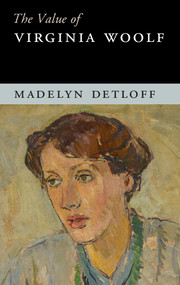Epilogue: Woolf's Legacy
Published online by Cambridge University Press: 05 March 2016
Summary
Virginia Woolf drowned herself in the River Ouse on March 28, 1941. Her suicide has become one of the most-known things about her life, due in part to the lyrical and haunting representation of that event in Stephen Daldry's 2002 Hollywood film, The Hours. While it is impossible to know exactly what was going through Woolf's mind on that Friday in March, many have nevertheless speculated on her psychological state. Some, such as the wife of the Bishop of Lincoln, presumed to know Woolf's mind and to find it wanting. According to Hermione Lee, the Bishop's wife wrote “an outraged letter to the Sunday Times” castigating the coroner at Woolf's inquest for apparently showing compassion with his suggestion that Woolf felt “the general beastliness of things more than most people.” As both Lee and archivist Sybil Oldfield point out, the Bishop's wife's nasty public letter got the facts of the case wrong, in part due to the coroner's misquotation of Woolf's suicide note to Leonard Woolf. The accurate text of Woolf's letter makes it clear that Woolf was worried about the onset of another mental breakdown (potentially a severe manic episode) that would encumber her loved ones (Leonard and Vanessa) should the Nazis succeed in their threatened invasion. This worry was not the paranoid fantasy of someone in the grip of unreason: the Germans were pounding Britain with heavy air strikes in March of 1941, and Sussex, where the Woolfs lived, is close to the English Channel. Lee, commenting on a draft of Woolf's suicide note, argues, “this generous, careful, precise letter … is not the letter of an irrational or mad person, but of a person … suffering from a terrible fear of the possibility of a breakdown with no recovery. The writing of the letter, and the act it presaged, though an act in extremis, was rational, deliberate, and courageous.”
After Woolf's death was made public, Leonard Woolf received scores of condolence letters from friends, neighbors, business acquaintances, and the general public. As Oldfield notes, Woolf's death occurred during an extremely difficult time for the British, as Nazi Germany and its allies controlled much of continental Europe, and the United States had yet to enter the war as allies to the British.
- Type
- Chapter
- Information
- The Value of Virginia Woolf , pp. 93 - 102Publisher: Cambridge University PressPrint publication year: 2016



